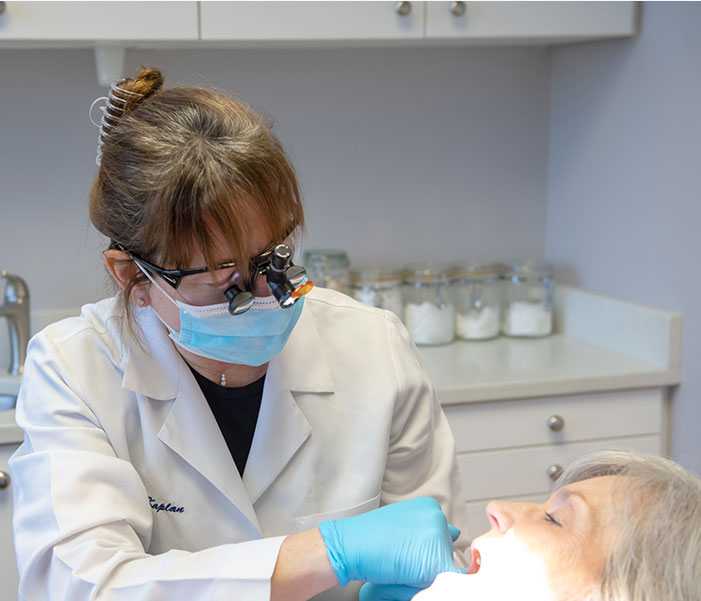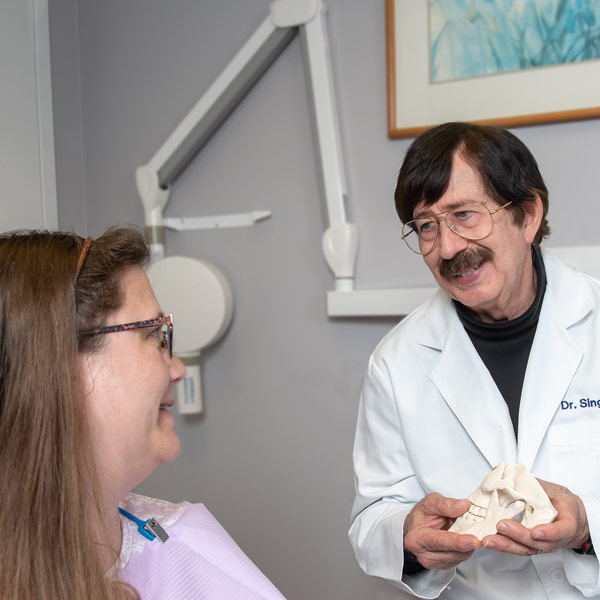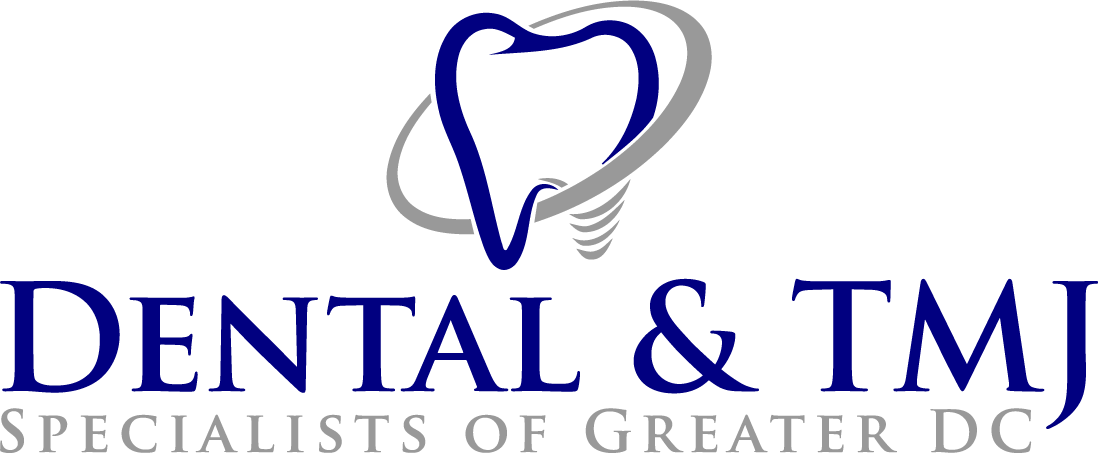Orofacial Pain & TMJ
Orofacial Pain
Orofacial pain is a broad term used to describe symptoms of pain and/or dysfunction in the head and neck region. Multiple causes for orofacial pain may exist and the symptoms may include headaches, neck pain, ear pain, dental pain, facial burning or stabbing sensations, and jaw joint pain. Symptoms may also include unusual pains or sensations such as ringing in the ears (tinnitus), dizziness, muscular incoordination or even abnormal itching or tingling in the head and neck region.
The complaints may either develop gradually or have a rapid onset and can originate from neurovascular, neuropathic or musculoskeletal causes. Common symptoms include pain or tenderness in the face, jaw joint area, neck, and shoulders, as well as around the ear when chewing, speaking, or opening your mouth wide. Problems when opening the mouth too wide, the jaw can get stuck and lock in the open- or closed-mouth position.

Temporomandibular Disorders (TMD)
Often referred to as temporomandibular joint or TMJ, temporomandibular disorders encompass a broad category of conditions involving pain and/or dysfunction of the jaw joints, the muscles of the jaw (chewing muscles) or both.
Neurovascular Disorders
The most common symptom associated with neurovascular disorders are migraine headaches.
Fibromyalgia
Fibromyalgia is a disorder characterized by excessive musculoskeletal pain accompanied by chronic symptoms such as fatigue, sleep, memory and mood issues. Researchers believe that fibromyalgia amplifies painful sensations by affecting the way the brain processes pain signals.
Trigeminal Neuralgia
Trigeminal neuralgia is a chronic pain condition that affects the trigeminal nerve, which carries sensation from the face to the brain. If you have trigeminal neuralgia, even mild stimulation of your face, such as from brushing your teeth or putting on makeup may trigger a jolt of severe pain.
Lyme Disease
Lyme disease is associated with multiple inflammatory and neurological symptoms such as arthralgia, arthritis, Bell’s palsy, severe headaches, and temporomandibular joint (TMJ) pain. Customarily, Lyme Disease induced TMJ arthritis is often missed by physicians who have not received an adequate education. As a result, new onset TMJ arthritis, likely associated with acute Lyme Disease, is later discovered.
Bell’s Palsy
Bell’s palsy, named after Scottish surgeon, Sir Charles Bell, who specifically studied this nerve over two hundred years ago. Bell’s palsy causes the muscles on one side of the face to become weak or paralyzed. It affects only one side of the face at a time, causing it to droop or become stiff on that side. Typically, it is caused by trauma to the seventh cranial nerve, also known as the ‘facial nerve.’

Burning Mouth Syndrome
Burning Mouth Syndrome (BMS) is a painful, complex condition that may be a form of nerve damage. It is often described as a burning, scalding, or tingling feeling in the mouth that may occur every day for months or longer. Dry mouth or an altered taste in the mouth may accompany the pain. Other causes include a decrease in saliva production, certain medications, fungal infections and some systemic diseases such as diabetes. BMS is most commonly found in adults over the age of 60.
Bruxism
The two main characteristics of this condition are grinding the teeth and clenching the jaw. Bruxism may cause the following symptoms:
- Gum Recession – Bruxism is a leading cause of gum recession and tooth loss. Grinding teeth can also damage the soft tissue directly and create a deep pocket area where bacteria is able to form and erode the supporting bone.
- Facial Pain – Grinding can eventually shorten and blunt the teeth. This can lead to muscle pain in the myofascial region and, in severe cases, may cause chronic headaches.
- Occlusal Trauma – The abnormal wear patterns on the occlusal (chewing) surfaces of the teeth can lead to fractures, which if left untreated, may require restorative treatment. To maintain optimal oral health, our dental specialists have the experience, skills, and knowledge to uniquely combine science and artistry that can literally redesign a patient’s bite. It can change a patient’s quality of life by creating a smile that is healthier and comfortable. Unfortunately, there is no known cure for bruxism. However, once the patient’s teeth have been corrected, a customized acrylic mouth guard is fabricated that can be worn whenever necessary to protect the newly designed teeth.
Sleep Disorders
Sleep problems include symptoms resulting from sleep bruxism (grinding the teeth during sleep) and clenching to conditions that result from sleep-related breathing disorders such as snoring or sleep apnea.
Trauma
Trauma, especially from automobile accidents, is a major cause of temporomandibular disorders (TMD) and other facial pains.
Drs. Kaplan, Singer, and Bolding are the leading experts at Dental & TMJ Specialists of Greater DC, who have the advanced education and extensive clinical hours working with patients who have simple to complex symptoms in the areas of orofacial pain and temporomandibular disorders.
